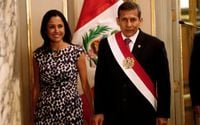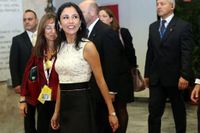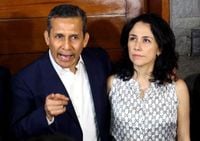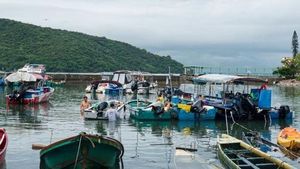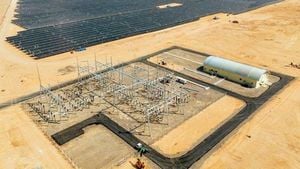Nadine Heredia, the former first lady of Peru, arrived in Brasília on Wednesday, April 16, 2025, under the protection of diplomatic asylum granted by the government of Luiz Inácio Lula da Silva. This significant development comes just one day after she and her husband, former President Ollanta Humala, were sentenced to 15 years in prison for corruption and money laundering related to the Brazilian construction giant Odebrecht and illicit contributions from the late Venezuelan President Hugo Chávez.
Heredia traveled on a Brazilian Air Force (FAB) plane, which was dispatched to Lima after Peruvian authorities granted the necessary safe-conduct for her departure. Accompanying Heredia was her youngest son, Samir, who also received diplomatic asylum. Upon her arrival in Brasília, Heredia expressed her intention to seek medical treatment for a cancer she has been battling, indicating a desire to travel to São Paulo for further care.
On April 15, 2025, the Peruvian judiciary convicted Heredia and Humala for receiving illicit funds amounting to $3 million from Odebrecht during their successful 2011 presidential campaign, as well as an additional $200,000 from Chávez for their 2006 campaign. The couple has consistently denied these allegations, framing their legal troubles as politically motivated persecution.
The defense team for Heredia and Humala has announced plans to appeal the convictions, denouncing the actions of Peruvian prosecutors and drawing parallels to Brazil's Operation Lava Jato, a massive corruption investigation that has implicated numerous political figures across Latin America. Attorney Marco Aurélio de Carvalho, part of the defense team, emphasized that the asylum request was based on claims of political persecution and the urgent need for medical treatment, as stipulated in the 1954 Convention on Diplomatic Asylum between Brazil and Peru.
The Brazilian government’s decision to grant asylum was expedited after President Lula personally contacted Peruvian President Dina Boluarte to secure safe-conduct for Heredia and her son. Boluarte’s administration swiftly approved the request, highlighting the complexities of diplomatic relations and asylum protocols in the region.
Upon arriving in Brasília, Heredia was met with a mixture of support and scrutiny. Her defense team reiterated their position that the judicial processes leading to her conviction were flawed and politically charged. They argue that the immediate enforcement of the prison sentence violated Peruvian law, which typically requires a conviction to be upheld by a higher court before incarceration.
Humala, who remains in custody in Peru, has also claimed that the charges against him are the result of political vendettas. He was taken into custody immediately following the sentencing, marking a significant moment in Peru's ongoing struggle with corruption that has ensnared multiple former presidents. Currently, he is being held in Barbadillo prison in Lima, a facility known for housing high-profile political figures.
The case against Heredia and Humala is part of a broader scandal involving Odebrecht, which has admitted to paying approximately $788 million in bribes across Latin America to secure lucrative government contracts. This scandal has led to the conviction of several former Peruvian leaders, including Alejandro Toledo, who received a sentence of over 20 years, and Pedro Castillo, who is currently serving time for attempting to dissolve Congress.
The implications of the Heredia and Humala case extend beyond personal repercussions, as they reflect the pervasive corruption that has plagued Peruvian politics for years. The allegations against them include not only the misuse of campaign funds but also a broader narrative of political manipulation and the intertwining of state and corporate interests.
As the situation continues to unfold, both the Peruvian and Brazilian governments are navigating the diplomatic ramifications of Heredia's asylum. The Brazilian government has a long history of granting asylum to political figures from across Latin America, a practice rooted in its commitment to human rights and political freedom.
In the context of the current political climate in Peru, the decision to grant asylum to Heredia may be seen as a challenge to the legitimacy of the ongoing legal proceedings against her and her husband. Critics of the Peruvian judicial system argue that the trials have been marred by inconsistencies and a lack of due process, echoing concerns raised during Brazil's own corruption investigations.
Looking ahead, Heredia's case will likely continue to attract international attention, particularly as it intersects with issues of political asylum, human rights, and the ongoing fight against corruption in Latin America. The defense's strategy will hinge on framing the narrative as one of political persecution, while prosecutors will aim to uphold the convictions as a necessary step towards accountability in a corrupt political landscape.
As Heredia begins her new chapter in Brazil, the implications of her asylum and the fate of her husband, Humala, remain closely tied to the evolving political dynamics in both countries. The outcome of their appeals and the international response to their case will be critical in shaping the discourse around political corruption and justice in the region.

